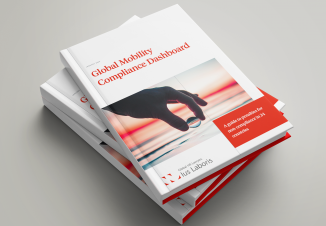
The Law ((Law of 16 December 2020, published in Mémorial A n° 1024 of 18 December 2020) imposes additional working and employment conditions on companies that post workers in Luxembourg for more than 12 months.
For example, as of the 13th month, the posting company will be subject to all legislative, regulatory and administrative provisions, as well as those arising from collective bargaining agreements for which a Grand-Ducal regulation has extended the personal scope of application beyond the signatories of the agreement. There is an exception for those relating to:
The Law provides that the duration of 12 months may be extended to 18 months upon duly motivated notification from the sending company, sent before the expiry of the 12-month period to the Inspection du Travail et des Mines (Labour and Mines Inspectorate, ITM) via the electronic platform intended for this purpose.
The Law extends the scope of its provisions to postings organised by temporary employment agencies and companies that provide workers within the context of workforce leasing, which are based abroad, when the worker being ‘used’ carries out temporary work in Luxembourg for a user company based abroad.
In addition, prior to the posting, the user company that is temporarily working in Luxembourg must inform the employer of the posted worker (namely the temporary employment agency or the company that provides workers within the context of workforce leasing) of their posting and the applicable conditions in terms of work and employment (including remuneration).
If another posted worker performs the same task at the same place, the cumulative duration of the two posting periods will be considered for calculating the 12-month period. ‘The same task at the same place’ will be considered taking into account, inter alia, the nature of the service provided, the work performed and the address of the workplace.
Allowances specific to the posting are considered to be part of minimum wage provided that they are not paid to reimburse expenses actually incurred as a result of the secondment, such as travel, accommodation or food expenses.
The employer is now also legally required to pay:
New information needs to be sent to the ITM via the online platform to get a social ID badge (‘badge social), namely:
A company posting an employee to Luxembourg should send the following additional documents to the ITM via the online platform once the posting has started:
Non-compliance with the new information requirements described above is punishable by an administrative fine of between EUR 1,000 and EUR 5,000 per seconded employee and between EUR 2,000 and EUR 10,000 in the event of a repeated offence within two years from the date of notification of the first fine.
Workers in the international road transport sector temporarily posted to Luxembourg will continue to be subject to the current provisions relating to posting workers until a new directive is published specifically for this sector.


